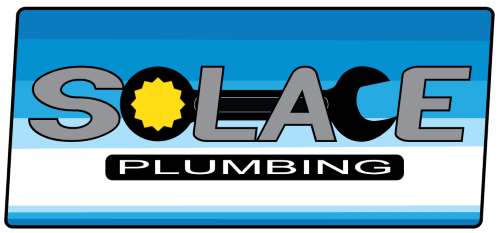Easy Steps a Homeowner Can Take to Conserve Water
By activating simple strategies, homeowners can notably decrease their water use, leading to lower utility bills and a more sustainable lifestyle.
Water conservation is a critical part of responsible homeownership. By activating simple strategies, homeowners can notably decrease their water use, leading to lower utility bills and a more sustainable lifestyle. This blog post explores practical steps that any homeowner can adopt to conserve water in and around their home.
Fix leaky faucets and pipes
One of the most straightforward ways to conserve water is by addressing leaky faucets and pipes. A seemingly minor drip can waste a substantial amount of water over time. Regular inspections and prompt repairs can prevent unnecessary water loss. For more complex plumbing issues, consulting a residential plumber is advisable to guarantee proper fixes and prevent future leaks.
Install water-efficient fixtures
Upgrading to water-efficient fixtures is an excellent long-term strategy for water conservation. Low-flow showerheads, dual-flush toilets, and faucet aerators can dramatically reduce water usage without compromising functionality. These modern fixtures are designed to maintain water pressure while using less water, making them an ideal choice for environmentally conscious homeowners.
Optimize lawn and garden watering
Outdoor water usage often accounts for a notable portion of a household's water use. Implementing efficient watering practices for lawns and gardens can lead to substantial water savings. Watering early in the morning or late in the evening minimizes evaporation, allowing plants to absorb more water. Additionally, using mulch around plants helps retain moisture in the soil, decreasing the need for heavy watering.
Collect and use rainwater
Harvesting rainwater is an eco-friendly approach to water conservation. Installing a rain barrel or cistern to gather rainwater from gutters and downspouts provides a free source of water for gardening and outdoor cleaning tasks. Utilizing rainwater reduces reliance on municipal water supplies and helps manage stormwater runoff.
Adjust daily habits
Small changes in daily routines can contribute significantly to water conservation efforts. Taking quicker showers, turning off the tap while brushing teeth or shaving, and only running full loads in dishwashers and washing machines are simple yet effective ways to reduce water usage. These habits, when adopted consistently, can lead to substantial water savings over time.
Use drought-resistant landscaping
Incorporating drought-resistant plants and landscaping techniques can dramatically reduce outdoor water consumption. Native plants adapted to local climate conditions typically require less water and maintenance. Xeriscaping, a landscaping method that minimizes the need for irrigation, is an excellent option for homeowners in arid regions or those looking to significantly reduce their water footprint.
Regularly maintain plumbing systems
Preventive maintenance of plumbing systems is crucial for water conservation. Routine inspections can track down potential issues before they escalate into major problems. Checking for hidden leaks, maintaining water heaters, and keeping drains clear are essential tasks that contribute to overall water efficiency. For comprehensive plumbing assessments and professional plumbing repair, consulting with a licensed plumber is recommended.
Upgrade to water-efficient appliances
When replacing appliances, opting for water-efficient models can lead to significant water savings. Modern washing machines, dishwashers, and water heaters are designed with water conservation in mind. Keep an eye out for appliances with a WaterSense label, which indicates they meet strict water efficiency criteria set by the EPA.
Reuse greywater
Greywater, which is gently used water gathered from sinks, showers, and washing machines, can be reused for various non-potable benefits. Simple greywater systems can divert this water to irrigate gardens or flush toilets, reducing overall water consumption. However, it's important to check local regulations regarding greywater usage and consult with a professional to implement a safe and effective system.
Educate household members
Creating awareness about water conservation within the household is crucial for long-term success. Educating family members about the importance of water conservation and involving them in water-saving initiatives can foster a culture of sustainability. Encouraging children to participate in water-saving activities can instill lifelong habits of responsible water usage.
Monitor water usage
Keeping track of water consumption through regular meter readings or smart water monitoring systems can provide valuable insights into usage patterns. Identifying spikes in water usage can help homeowners detect leaks or inefficiencies promptly. Many utility companies provide online tools or mobile apps that let customers to monitor their water usage in real time, facilitating more informed decision-making regarding water conservation efforts.
By implementing these practical steps, homeowners can make a significant impact on their water consumption. Water conservation benefits the environment and leads to reduced utility costs and a more sustainable household. While some measures may require initial investments, the long-term benefits far outweigh the costs. For more complex water-saving initiatives or plumbing upgrades, consulting with a residential plumber or water conservation specialist can provide customized solutions to meet specific household needs.
Solace Plumbing is a leading plumber in Gilbert, AZ, offering sewer services, water heater, tankless water heater, electric water heater, gas water heater, water filter, reverse osmosis system installation and repair, water conditioner installation and repair, water treatment system maintenance, and water treatment system installation and repair. Licensed and insured with years of industry experience. Call us for an estimate.

